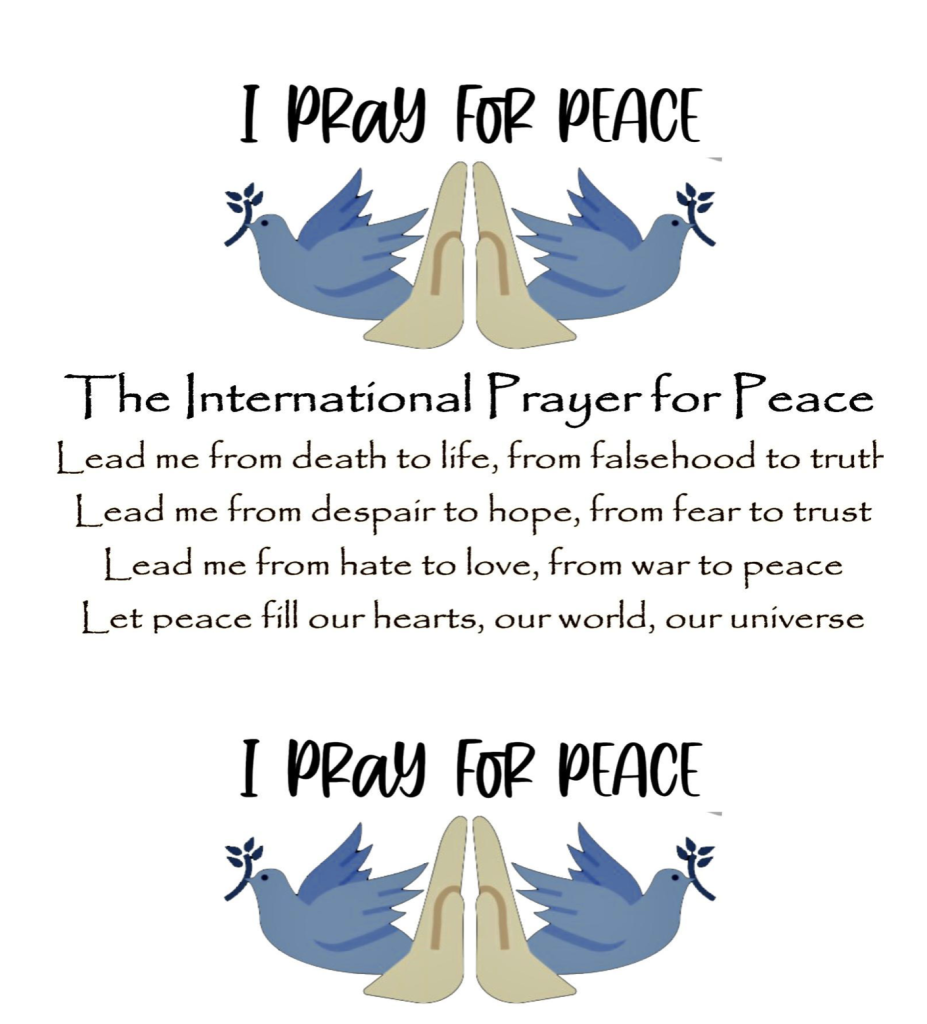Building peace through contemplation, compassion and our common humanity
April 15, 2025
We acknowledge respectfully the Boonwurrung people and the elders and people of the Eastern Kulin nation who have traditional connections with, and responsibility for, the land on which we meet.
We pay our respects to elders past, present, and emerging.
We are all aware of the need for sustained peacebuilding at many levels..
The extent of the violence caused by hate and violence breaks our hearts.
The need for a “whole of community response” is demonstrated by our Governor’s presence and leadership today.
Her Excellency Professor, the Honourable Margaret Gardener AC, has consistently offered this leadership, and we are so grateful for this. Likewise, we are grateful that the importance of Inner and Outer Peacebuilding has drawn here leaders of our multi-faith communities, as well as leaders of education, media, and industry. Crucially too in this place of democracy, our Parliamentarians, including the Parliamentary Secretary for Multicultural Affairs, Iwan Walters MP, join us.
Together, we will consider how to better deepen the connection between our ways of sustaining inner peace and our outer work in peacebuilding.
The hope is that this will help us shape and share future plans and intentions. Together, we pray to enhance the contemplative awareness and compassion with which we express our common humanity in daily life.
For myself, as a disciple of Jesus, this gathering comes just before our Holy Week and Easter. Hence, I offer this reflection – drawing on contemplative awareness; personal experience of the divine, and relating this to our current circumstances.
Background. “Why do you look for the living among the dead?”asks the angel of those perplexed to find Jesus no longer in the tomb.
“He is not here but has risen” (Luke 24.5).
The first time I really knew the truth of this was at an Easter Sunday service. I had not been going to Church, and had been learning to be a meditation teacher in Spain. After initiation under a full moon as a teacher of meditation, I had arrived home. I did not expect what was given when the Easter gospel was read, and the sacrament was offered. Had those months of meditation opened me to the truth that had always been there? Or was this purely the gift of divine grace in the moment?
The first gift of the risen Jesus was peace (John 20.19).
This was what I received that Easter Sunday, when I turned up, not expecting anything much.
Some more years were to pass before that Easter Sunday became a vocation to holy orders. In between, to wake me up, there was a vision given of the radiant and risen Jesus, still bearing the wounds of his suffering, but emanating a quality of peace that was completely beautiful.
And so. Looking back, I see the loving patience of God with me through it all. Over the years since, I have come to better understand the patient, loving intent of the Creator towards all of us on the planet…
Humbly, I therefore offer this simple conclusion: when we take in that there is this loving divine intent towards us all, it profoundly uncomplicates the way we live, and indicates the way we should live!
From the mystical tradition. In the 14th century, Julian of Norwich was given ‘Revelations of the Divine Love’ unexpectedly, like many before and since. Julian pondered what she saw for twenty years, then wrote down what she had been shown.
The last words she wrote were her answer to why she had been given this revelation. Love was God’s meaning.. ‘And I saw fully surely that before ever God made us, God loved us. And this love was never quenched, nor ever shall be…And in this love our life is everlasting.’ (The Way of Julian of Norwich, Sheila Upjohn, SPCK, London 2020 p.84).
Local stories that show the relevance of this. Getting ready for this Easter, I had a haircut locally. We talked, as we have talked before. My hairdresser was just back from a visit to her country of origin. It’s a little bit safer there now. She’d taken her family on this brief visit. The children were all very young when the family fled from invading and violent religious extremists.
She is grateful to Australia. More than a decade since seeking safe refuge, her children are all now on positive education and employment pathways. But the sadness seeps out as she speaks of seeing their old family home. She brightens up when sharing proudly of how she saw the places of worship in her village being carefully restored. She knows God’s providence.
The women who came to Jesus’ tomb early that first Easter morning brought the spices that they had prepared, such was their love.
It is the deep privilege of my life to be asked, at times, to pray with and for those near death. One day recently, I went to a home just in time to pray my mantra, ‘Jesus have mercy,’ as this person had his last breath. Family members were there in their tender, loving grief. There was a fragrance surrounding as I prayed their beloved into the place prepared – a place which is promised to be one of union and of reunion (John 14.1-6).
Coming outside afterwards, the sheer wonder of this life we have (for a time), was vivid. The birds of the early morning. Light through the trees. People moving about. A busy cafe and the smell of coffee….ordinary things are completely wonderful.
That family’s love and grief stays with me as we see, day after day, the pictures of family’s grieving after the violent death of loved ones by those bombs, drones, gunshots… in so many places of war.
This earthly life is such a precious and beautiful gift.
Those whose leadership leads to the killing of other people’s children may think they know what they are doing…but…
A Conclusion. It seems to me that Easter says to us this year:
“Wake up, human family. It need not be like this… These terrifying weapons. The hateful rhetoric …leaders who never seem to meet long enough to stop the killing… the inconsolable grief of those bereaved. It just need not be like this.”
There is a French Easter Carol with the refrain: “Love is come again that with the dead has been.”
We are simply asked by the Creator of all that is, seen and unseen, to be loving in this precious gift of life. Under no circumstances, to do to others what we would not want done to us, or to our loved ones.
The ordinary people on the planet — that family with whom I prayed amidst love’s grief; the hairdresser who is glad of refuge in Australia but misses her childhood home — all just want a safe, peaceful life.
And it can be so. A new form of ‘multilateralism’ is latent in the anguish we all feel about a future of more violence, more furious arms races, and more dead children in the arms of their bereft parents.
I know from decades of multi-faith peace work across the globe that this is possible. We just have to keep building “the critical mass” of people who so insist. Doesn’t this include us? We who gather to consider the contribution we can next make, individually and together, to “inner and outer peace.”
This personal reflection concludes with the International Prayer for Peace. We can pray “lead me,” and we can pray “lead us".

A personal reflection by Bishop Philip Huggins at the Victorian State Parliament on 11 April

